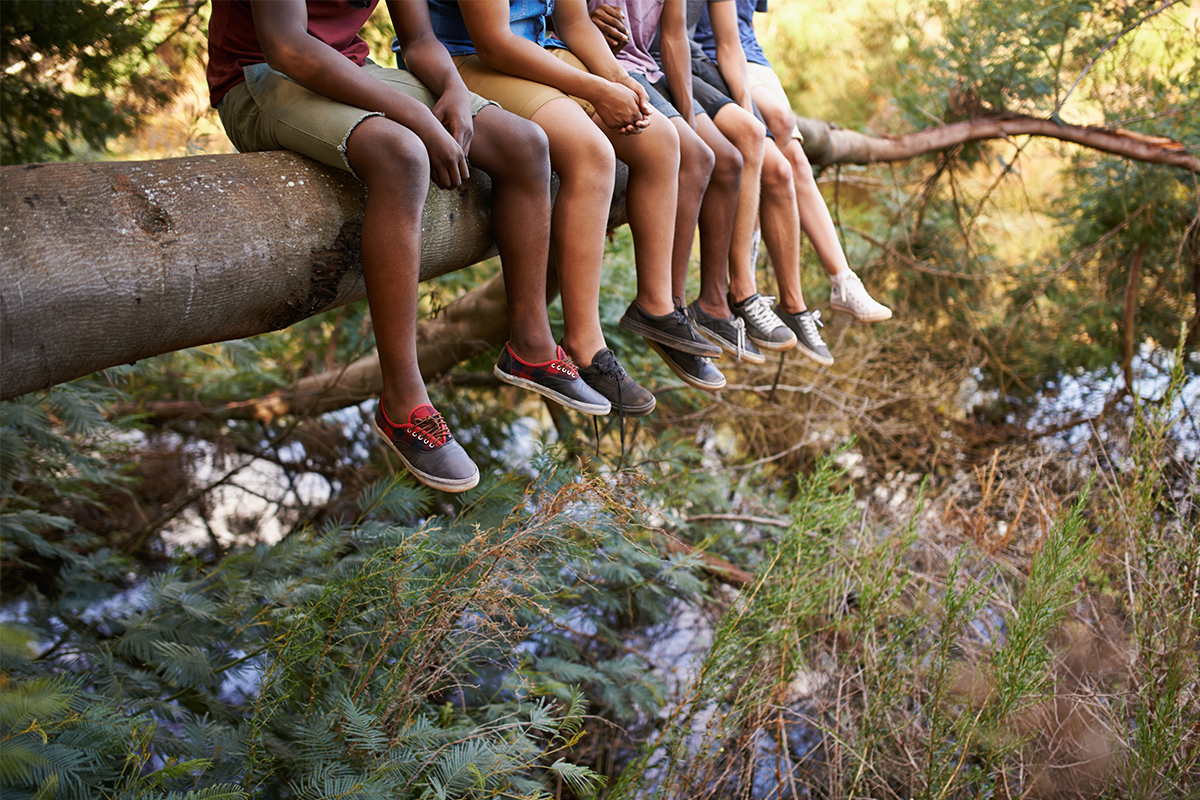If you understand what it means to live 10 months for two, still keep in touch with your bunkmates, or have been looking forward to squeezing your friends, campers, or counselors all year, then you are a camp person. It’s hard to explain to people who aren’t camp people what is so special about camp. How do we describe the enduring love, even years after we’ve attended? What draws us to the constant shared personal space, the singing, the community-based lifestyle with nonexistent alone time?
It’s a challenge for me, even after 14 years, to articulate why I am happiest at age 21 in the same place that made me just as happy when I was 8 years old. But in the face of a global pandemic, and after the news that many camps won’t be in session this summer, it’s become even more clear to me why we love camp so much, and why it is so important for Jews.
Said best by Camp Ramah’s national director Rabbi Mitch Cohen, the effects of coronavirus are “the very antithesis of camp.”
Coronavirus is a constantly changing, unpredictable disease that causes social distancing and isolation. It forces us to engage with technology on an hourly basis to communicate with people. It isolates us from our in-person learning and Jewish communities. It is purely alone time, whether we want it or not.
Jewish sleepaway camp is all about community, stability, and tradition. Jewish summer camp is the most constant place for children, teens, and young adults who are in states of change and growth. And somehow, the most unchanging place in the world is where we can do our best growing. Coronavirus kills and alienates. Camp grows and loves.
And yet, as we look ahead into a scary, indefinite future, camp season is approaching with little optimism. The Union for Reform Judaism has announced that all 15 of their sleepaway camps will not operate this summer, affecting 10,000 kids. At least one Conservative camp, Ramah Darom in Georgia, also just announced that it would not open, and all of the other Ramah camps are in the midst of making their decisions based on state regulations and coronavirus predictions.
Hundreds upon thousands of Jewish children, teenagers, young adults, and adults alike can’t say with certainty what their summer plans are as other camps grapple with their decision to either postpone or cancel. Tents, cabins, dining halls, sports courts, and praying places will remain empty; Torahs won’t be unscrolled; songs will remain unsung; the grass will stay green from a lack of foot traffic. The loss of Jewish summer camp, while comparatively insignificant in the grand scheme of this horrific pandemic, is still a tremendous loss.
I am a camp person, through and through. I have spent every summer since 2007 at Camp Ramah in California, as a camper for eight summers and a counselor for four. I was lucky enough to be a counselor for the same group of campers all four years on staff, from when they were going into 7th grade until this past summer, when they were going into 10th grade.
I cannot overstate the amount of growth that occurs in those years — I got to witness these kids grow from little kids to young adults. As they grew, I grew too: I wasn’t even 17 when I was given the responsibility of caring for these campers, and I am now finishing up my junior year of college. It has been the joy of my life to watch and facilitate their growth and grow alongside them, and it is for them that I am writing this article. I am sad for all campers and counselors everywhere who will miss camp this summer. But right now, my heart is breaking especially for my kids, who are supposed to be in their last year as campers.
The experience of the final year of camp is a universally special one: No matter what camp you go to, you will always remember Gesher, CIT summer, or in my kids’ case, Machon. It is a summer of reflection, tradition, and independence — and in some ways, it is irreplaceable. The other night, as I reflected on my time with my campers and how much they have grown, I cried.
The loss is not my own, but I grieve for my kids, who deserve the most meaningful summer ever. I cried for all of the Jewish kids across the country who will be robbed of one more year of camp.
As more camps get cancelled this summer, campers, counselors, staff members, directors, and parents will mourn their loss. Not just because camp is fun and enriching, but because it cultivates so much growth, both personally and Jewishly. The truth is, even as life is always changing — relationships, passions, identities, struggles — camp has been in the same place, waiting patiently for us to get back so it can provide love, nourishment, and a space to make mistakes (and learn from them).
Coronavirus has changed how camp operates, possibly forever. We may never be able to look at camp communal bathrooms the same, or eagerly approach hugs on Shabbat as we have all of these years. But camp will be back. Even for those of you who have lost your final summer—as every counselor who swore they wouldn’t go back can attest to, a “final summer” doesn’t really exist. And in those summers to come, I know it will be magical to step into the most familiar and welcoming place and continue to grow.
Header Image: PeopleImages/Getty Images.



